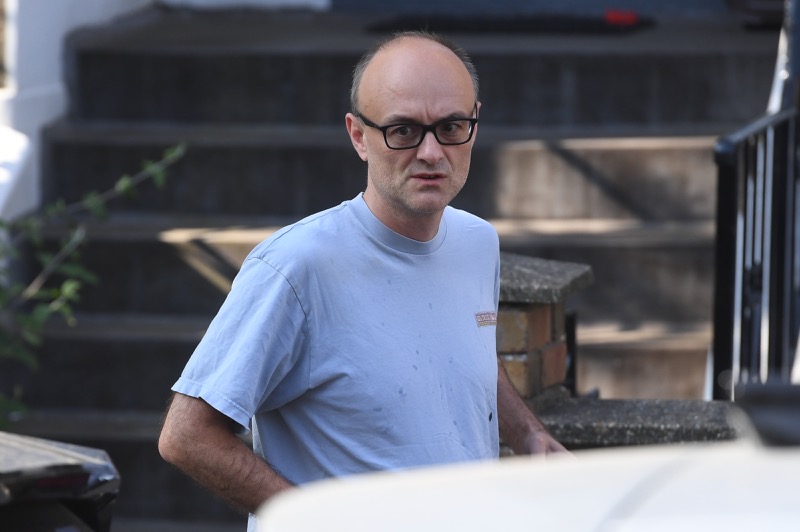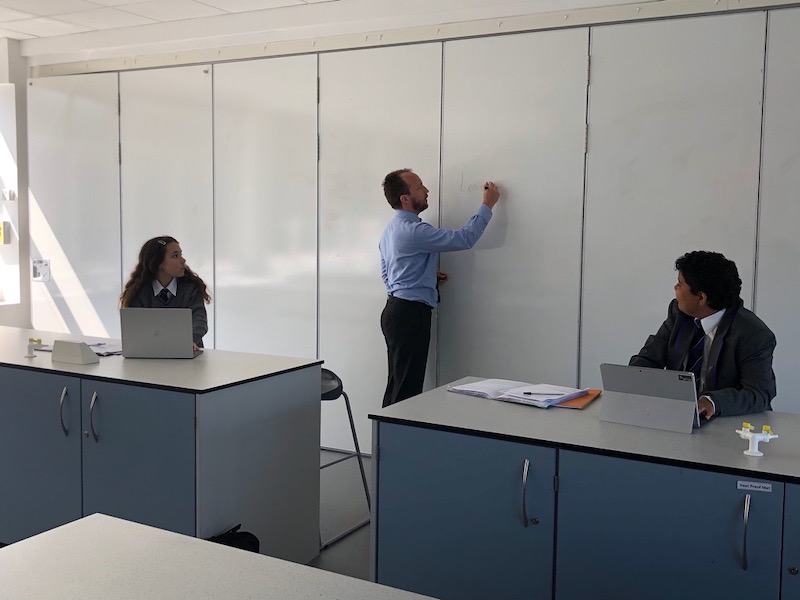A matter of weeks before the nation was forced into lockdown and our schools with it, Pope Francis spoke on World Communications Day about the importance of story. At the opening of his sermon he stated the need for “Stories that build up, not tear down; stories that help us rediscover our roots and the strength needed to move forward together. Amid the cacophony of voices and messages that surround us, we need a human story that can speak of ourselves and of the beauty all around us.”
In many ways, the months following Pope Francis' thoughtful sermon have felt less like a story and more like an everlasting saga. Just over two months ago the doors to our school, All Saints Catholic College in north Kensington, closed to the vast majority of our students. While the doors to our physical school closed those to another world of online learning opened. During this time we have learned so much about ourselves our students and our school community as a whole. Our school serves a highly diverse community with just under 60 per cent of our total school community being in receipt of the Government's Pupil Premium, that is, funding for some of the most disadvantaged backgrounds. Over 50 per cent of our pupil population speak English as an additional language and the proportion who are categorised as having SEN is also significantly high. Running a school in this type of context on a day to day basis is challenging enough, running a school from a makeshift home office is even more challenging.
About six weeks before lockdown was announced myself and my Senior team began working on a plan for live teaching our students remotely, should the UK follow the same lockdown route as other European countries had. We were lucky that the communication software we had been using internally for staff and students for several years had video calling built in. Since the first day of lockdown we have taught “live” lessons to every year group, every day, including Year 11 who, no longer sitting public examinations, we taught them lessons to help make the transition into post-16 study. We have bought and sent home £10k worth of textbooks and exercise books for every single child in the school to supplement their online learning and ensure that families who are in receipt of free school meals have been provided with vouchers. We have called every single child and family at least once a week and for those who are vulnerable, every day to ask them what they need and let them know we are here to support them.
Teachers have produced daily exercise routines, videos promoting extra-curricular activities, podcasts as well as an online virtual Easter service. Heads of Department provided an online Year Nine GCSE Options evening to “advertise” their individual subjects. I cannot fault a single member of staff for their effort during this time; they have been relentless and I am incredibly lucky to work with such inspirational teachers. We are currently planning how we will mark the third anniversary of the tragedy at Grenfell, this is an extremely important memorial for us given that our school is situated only a few hundred metres from the tower itself. For our students, the narrative began with uncertainty in March, but quickly established itself into a sense of routine, online camaraderie and fun. They have risen to the challenges and demands of online learning with a sense of resilience and a capacity that far outreaches that of most adults. They have been, quite simply, astonishing.
For many of our teachers, this has been a story of discovery; finding and learning new skills. For some of the longest-serving and most experienced staff, the transition to online teaching into a camera has meant a restoration of purity to the art that is teaching. The careful choice of words, the formulation of narrative and the knitting together of subject content into a story which is so often lost behind a PowerPoint. This particular episode, like some of the best children's stories, has left many of my staff arriving at the self-realisation that when it comes to being a great teacher, the treasure is within.
When lockdown is lifted and some of the journalistic stories making villains of teachers have been forgotten, I hope the story woven into the imaginations of our students is one of triumph. An understanding that despite physical distance, the hard work of their teachers in trying to bring a decent education directly into their households has brought not only a greater depth of knowledge but the threads of a stronger community. I hope this has the makings of a renewed and richer tapestry for our school, as it will for so many others. Towards the closing of the aforementioned sermon by Pope Francis, he concludes, “even when we tell of evil, we can learn to leave room for redemption; in the midst of evil, we can also recognize the working of goodness and give it space”. As teachers, we have certainly borne-witness to the “working of goodness” in the midst of this evil virus and in the same sentiment as the Pope, and echoing the words of Exodus 10:2, this will certainly be a story to tell the “children and grandchildren”.
Andrew O'Neill is the headteacher of All Saints' Catholic College in North Kensington. Follow the college on Twitter.



 Loading ...
Loading ...
What do you think?
You can post as a subscriber user ...
User comments (0)